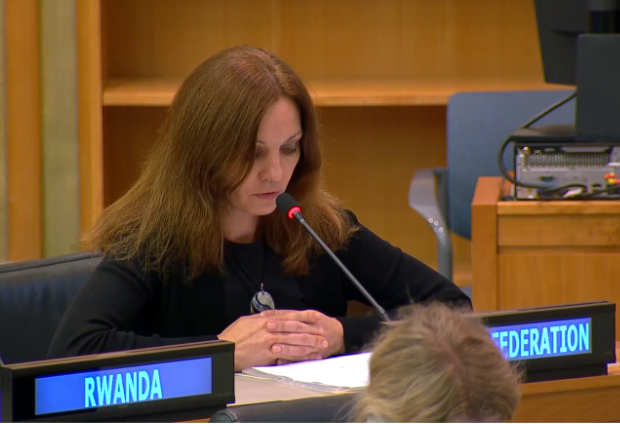Statement by the representative of the Russian Federation Victoria Kardash in the Second Committee of the 78th session of the UNGA under agenda item “Groups of countries in special situation”
Mr. Chairman,
We share the thesis that, in the context of worsening global macroeconomic problems and slowing economic growth, least developed countries (LDCs) and landlocked developing countries (LLDCs) are particularly lagging behind on many indicators of the Sustainable Development Goals.
Rising debt and unstable investment flows, which declined significantly last year in LDCs, are reducing the ability of these countries to mobilize domestic resources. First of all, this has a negative impact on achieving structural transformation and access to basic social services.
The achievement of the goals of the Doha Programme of Action for LDCs adopted last year must be accelerated. However, not all of its deliverables are already functioning. Among them are an online university, food stock holding solutions, an investment support centre and crisis mitigation and resilience building measures. There are also concerns that once they are created, they will not be supported by the necessary financial resources. In this regard, it is now necessary to propose appropriate strategies for attracting funds for the full operation of these structures.
Mr. Chairman,
Despite some progress in achieving the goals of the six priorities of the expiring Vienna Programme of Action for LLDCs, it is necessary to expand international support for this category of member states in terms of promoting their stable economic growth, increasing the share of these countries in world trade, building up and modernizing transport and logistics infrastructure, strengthening their own industrial and agricultural production, the introduction of ICT, the transition to various types of modern energy sources. A new programme of actions must include new, innovative solutions to ensure positive dynamics in these areas, including mechanisms for expanding cooperation with the private sector.
LLDCs are key beneficiaries of Russian technical assistance projects. Support is provided through ESCAP, UNDP, UNIDO, FAO.
The Addis Ababa Action Agenda for Financing for Development points to the significant role of integration processes in expanding trade exchanges. Russia is actively participating in regional integration processes. For example, in the EAEU, three out of five members belong to the LLDC category, we have made significant progress in relation to the free movement of goods, services, investments and labor, and is implementing joint initiatives to increase productivity and reduce transaction costs.
We look forward to constructive interaction with all delegations and the Office of the High Representative for LDCs, LLDCs and SIDS in the process of preparing to the 3rd UN Conference on LLDCs. We intend to take an active part in its work in Kigali. The new programme of action is intended to become a “road map” for the coming decade and set strategic guidelines for the efforts of the world community to increase the competitiveness of LLDC economies and mobilize additional political and resource support for this category of states. The process will also lay the foundation for the full integration of LLDCs into the global post 2030-Agenda.
Thank you for your attention.
